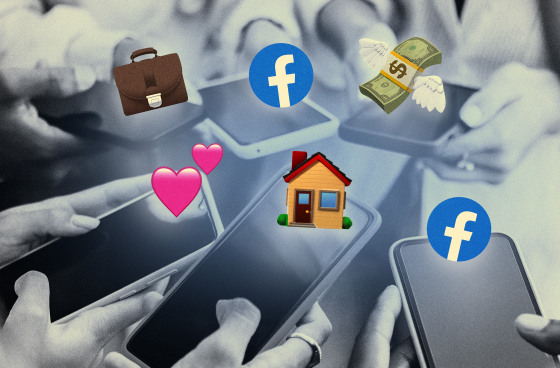Facebook wants to win back Gen Z users by transforming itself into more of a tool for young people to navigate adulthood better.
The social media platform announced a redesign last week that caters to what execs believe younger people want to see more of. The new design aggregates local content and recommendations, uses artificial intelligence to answer commonly asked questions within specific Facebook groups, and allows non-Facebook users to RSVP to Facebook events.
Facebook, which is now 20 years old, has plummeted in popularity among teens in recent years. But Meta, the parent company of Facebook, noticed that young adults active on the platform tend to use its community-centric features like Facebook Marketplace and groups.
Head of Facebook Tom Alison, who oversees the development of its products, said the company’s product strategy over the past few years has been motivated by two major factors.
“One is just: What do young people want — particularly young adults, Gen Z, ages 18 through 29 — from a social app these days? And how can Facebook really be a part of that?” Alison said. “And then the second is obviously all of the advancements in technology offered by AI.”
Banking on its active Gen Z user habits, Facebook has leaned into the community elements of its platform. Younger users tend to use the app as a tool to find roommates, bargain shop and join virtual groups that align with their hobbies and interests.
The Facebook redesign includes a new “Local” tab, which is currently being tested in a handful of major American cities, that aims to aggregate local activities, groups and hot spot recommendations from across the platform. It’s launching a “Weekly” and “Weekend Digest” feature to feed users a compilation of recommended events in their area.
The company is also adding a full-screen “Video” tab for Facebook reels, an “Explore” tab for content tailored to a user’s interests, and a “Matchmaker” feature that allows users to swipe on behalf of their friends on Facebook Dating.
The addition of a dedicated tab for algorithm-driven short-form video is a move that will make Facebook more similar to TikTok, Instagram and other platforms that have adopted the same strategy.
But people generally use different social media platforms for different purposes, said Colleen McClain, a senior researcher focusing on internet and technology research at Pew Research Center. While they do use apps across the board for entertainment, she said, it’s these community-focused features that people tend to associate with Facebook.
“Young adults know what really stands out when it comes to Facebook is that relationships are the driver,” McClain said. “Nearly all Facebook users are telling us they’re there to keep up with friends and family. A vast majority also say a reason they’re there is to connect with people who share their interests.”
Some Gen Zers who do use the platform more frequently described it as a place to find online community beyond their normal social circles as they navigate adulthood.
“I use TikTok and Instagram to reach all of my friends that are all across the whole world and the whole country,” said Cami Thorstenson, 24. “But Facebook is definitely like a tight-knit, smaller community.”
While she still prefers other social media apps, Thorstenson said she’s constantly scanning Facebook Marketplace and her local Buy Nothing group — which allows members to gift or request items and services for free — throughout the day to help furnish her Minneapolis apartment. She’s also used the various groups to connect with other nannies and get jobs.
Erin Carter, 23, said Facebook was something she only ever used to keep up with her grandma — until she decided to leave North Carolina and make a new life in New York. That’s when she joined a New York City-area Facebook group and made a post in search of a roommate. It led her to go apartment hunting online with two strangers she met on a video call.
“The funny thing is, I don’t go on Facebook much anymore, like it’s not my thing,” she said. “But I definitely used it to buy things and also to find my group in New York.”
Gabrielle McKay, 28, described Facebook as more “neighborly” than the other social media apps she spends time on.
“It just feels smaller, a little more intimate,” she said of the platform, which she primarily uses to browse her neighborhood Buy Nothing group. “And I think that is a space that people my age are looking for, oddly enough, to get a little solace from that ‘everybody’s watching you’ feeling.”
Meta has acknowledged that keeping younger users engaged is vital to the future of the platform.
In May, the company announced an increased focus on young adults as part of the “future of Facebook.” And last month, the company published a blog post for Gen Zers on how to navigate young adulthood with Facebook.
“Being able to expand our products around local offerings, it’s not the only thing that Facebook will become,” Alison said. “But we are seeing it really have a lot of resonance with young adults.”

